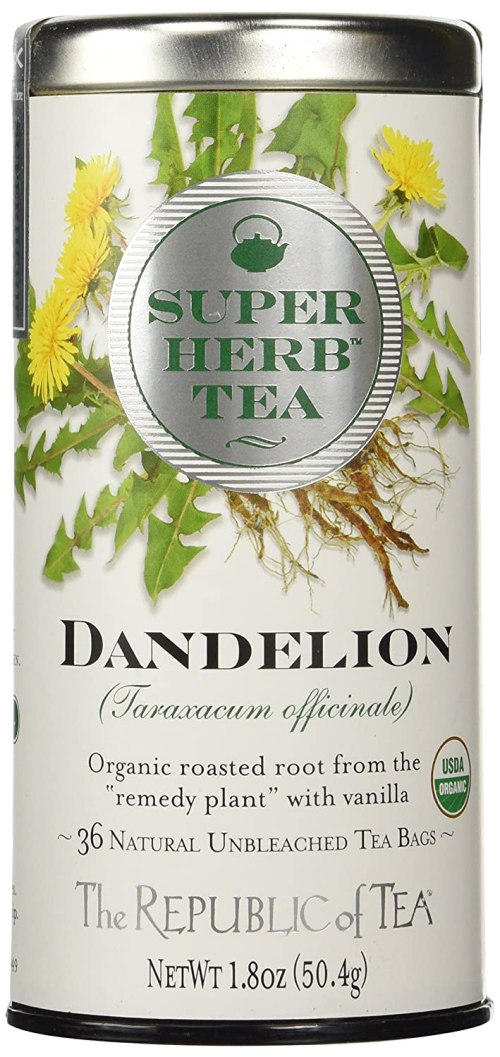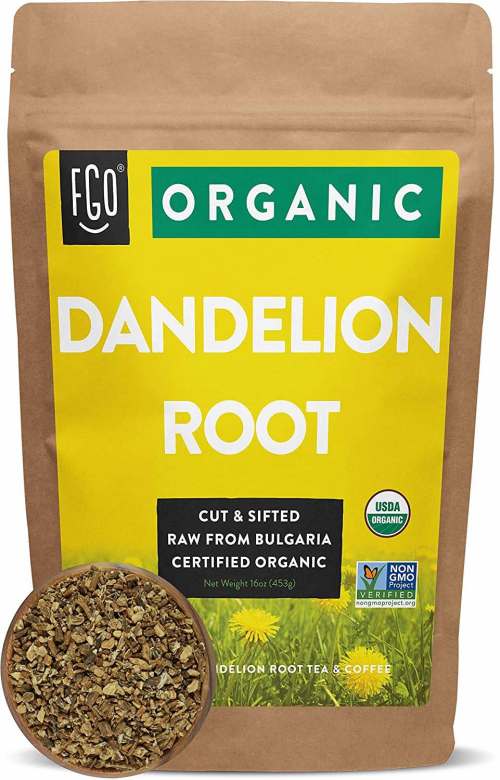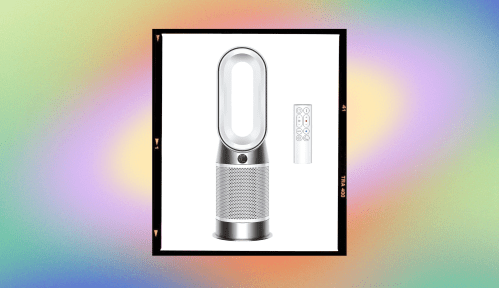Our editors independently select these products. Making a purchase through our links may earn Well+Good a commission
Dandelion Tea Is Getting Lots of Caffeine-Free Buzz—Here’s Why Everyone Is Brewing It
Dandelion tea benefits stretch from liver health to digestion. Here's what it taste like, what it's good for, and the best brands to buy.

Dandelion tea is having a major moment as more people are turning to it as a replacement for their morning coffee. Unlike other common coffee alternatives (think: chai and matcha), dandelion tea doesn’t have any caffeine. One of the biggest benefits of dandelion, however, is that it’s full of nutrients to start your day off on the right foot.
Experts in This Article
Annessa Chumbley, RD, is a registered dietitian.
New York-based registered dietitian
registered dietitian nutritionist and diabetes specialist in Los Angeles, California
“Dandelion tea is made from the dandelion roots, leaves, or flower, which we often refer to as weeds growing in our grass, but shockingly, they bring a lot to the table,” says registered dietitian Melissa Rifkin, RD. “They are chock full of nutrition! Fiber, minerals, and vitamins. A great source of vitamins A, C, and K.”
Vandana Sheth, RDN, registered dietitian nutritionist and author of My Indian Table: Quick & Tasty Vegetarian Recipes ($25), says dandelion tea benefits everything from your liver health to your digestion. “It may help reduce bloating, may help with liver health, soothe digestive issues, act as a coffee substitute, [and] may help prevent urinary tract infections,” she says.
Note: Dandelion tea also serves as a laxative and diuretic, so you don’t want to drink too much at a time. “I would begin with no more than a cup of tea a day, and take it from there. If you are looking to add more to your diet, I would recommend adding on slowly,” says Annessa Chumbley, RD.
Dandelion tea can interact with certain medications, including antibiotics, lithium, diabetes medications, medications that slow blood clotting, and any other medications broken down by the liver. It can also cause an allergic reaction. Sheth recommends checking in with your doctor before you start sipping.
You can make dandelion tea from either raw or roasted dandelions. If you’ve ever had dandelion leaves, you know they’re bitter, so grabbing a handful from your backyard and trying to DIY a tea will probably not taste too great. Instead, you want to use trusted dandelion tea blends.
Rifkin says that raw dandelion tea has a delicate, sweet taste. However, roasted dandelion root is more robust with bolder, smokier flavors, making it a great coffee substitute.
“It has no caffeine, which can be great for some, not for others,” says Rifkin. The taste of roasted dandelion root tea “is very similar to that of coffee. It actually smells like coffee, the coloring is a resemblance of coffee, with a deep bitter rich taste, many often crave in a coffee.”

The Republic of Tea Organic Dandelion — $14.00
If you like bagged tea, Rifkin recommends the Republic of Tea Organic Dandelion. This tube comes with 36 tea bags filled with a blend of organic roasted dandelion root and vanilla to make the flavor a bit milder.
8 Stylish and Adjustable Office Chairs a Chiropractor Would Approve Of

ThirdLove Just Launched Bras That Help Balance Your Body Temperature—Here’s Why That’s a Game-Changer for Women in All Life Stages

These Are the Summer Essentials You Should Bring With You Every Time You Leave the House, According to a Derm and an RD


FGO Organic Dandelion Root — $10.00
For loose tea drinkers, Rifkin recommends FGO Organic Dandelion Root. It’s 100 percent raw dandelion root harvested in Bulgaria. The brand recommends roasting the root at around 200°F to 250°F until it’s dry and then steeping it hot or cold water for five minutes. Grab the four-ounce bag ($10) or the one-pound bag ($23).
Oh hi! You look like someone who loves free workouts, discounts for cult-fave wellness brands, and exclusive Well+Good content. Sign up for Well+, our online community of wellness insiders, and unlock your rewards instantly.






